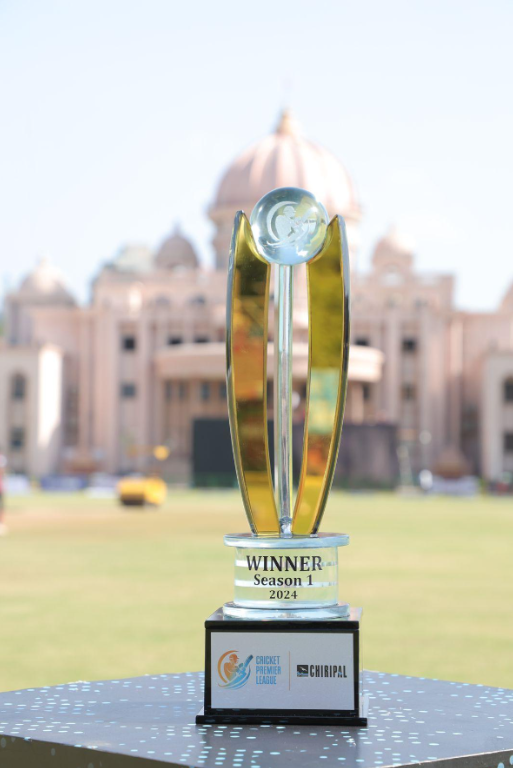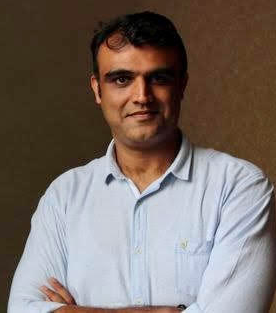T20 leagues have been the flavour of the season right since the start of IPL in March 24. Once the IPL got over many state associations like Punjab, Maharashtra, Chhattisgarh, and Bengal started their own leagues. Leagues like TNPL in Tamil Nadu, Maharaja T20 in Karnataka, Saurashtra Premier League etc have been going on since the last few years and have been a breeding ground for players like Varun Chakravarthy, Sai Sudarshan, Abhinav Manohar, Shahrukh Khan, just to name a few, who have gone on to draw considerable attention on the auction table at the IPL and some have even gone on to represent India in white ball formats.

Gujarat , which has the largest cricket stadium in the world, joined the bandwagon when an Ahmedabad based business group, Chiripal Foundation, organised a similar T20 league – CPL T20 where top 90 plus players affiliated with the Gujarat Cricket Association (GCA) were equally split into six teams viz Heritage City Titans ( lead by Urvil Patel), Ahmedabad Arrows ( Aarya Desai) Karnavati Kings (Chintan Gaja),Gandhinagar Lions (Manan Hingrajia),Sabarmati Strikers (Priyank Panchal) & Narmada Navigators ( Umang Tandel) . Not only top players from GCA participated but the state association provided all possible support in terms of resources, logistics etc like a true mentor. This tournament was a wonderful amalgamation of a private entity coming together with the state cricket association to provide a perfect platform for the young cricketers to showcase their skills.
Having observed this high octane and top-class tournament from close quarters, I found some of the players to be impressive and can go on to serve Gujarat cricket for a long time especially in the shortest format. Not only that they can also catch eyeballs of the IPL scouts and make it big in their respective careers.
The Openers: Opening the innings in any format is the most critical position for varied reasons depending on the format. In T20, openers are extremely vital as they set the platform in the powerplay on which the batters who follow build the innings further. During CPL some of the openers who caught my attention were:
- Urvil Patel: This wicket-keeper batsman and the captain of the champion team, Heritage City Titans, in the inaugural edition was the trendsetter of rollicking starts. He scored 284 runs in 7 innings with six 40 plus scores including two half centuries at a staggering strike rate of 218.55. Urvil also ended the tournament with most no. of sixes – 20.
- Smit Patel: Smit Patel of Ahmedabad Arrows, the runners up team, ended as the winner of the orange cap with most runs in the tournament (304 runs in 7 innings). He scored his runs at an average of 60.80 and strike rate of 155.90. Smit scored 3 fifties in the tournament.
- Aarya Desai: Aarya, a stylish left-hander, started the tournament with 3 consecutive half centuries before form and luck deserted him in the next four innings. But he gave enough evidence of his T20 batting prowess by scoring 193 runs in 7 innings at a healthy strike rate of 162.18.
- Priyesh Patel: Priyesh Patel, the wicket-keeper batsman from Karnavati Kings was the 3rd highest scorer in the tournament with 284 runs at an average of 40.57 and strike rate of 145.He scored 3 back-to-back fifties during the back end of the tournament which propelled his team into the play offs.
The Middle Order: In a tournament dominated largely by the openers, there were a few middle order batters who impressed me:
- Sunpreet Bagga: A batsman who relies more on finding gaps and running hard between the wickets, Sunpreet adapted to the demands of the T20 format well. He started the tournament sedately but ended up with scores of 65,114* & 71 in his last 3 innings. He was the 2nd highest scorer in the tournament with 291 runs and a healthy strike rate of 147.72.
- Smit J Patel: Another wicket-keeper batsman, who started the tournament slowly but picked up the pace and ended up scoring 242 runs at an average of 40.33 at a strike rate of 146.67, which included 4 scores of 30 plus and a hundred (105 off 50 balls) when his team was in a precarious situation.
- Saurav Chauhan: Fresh from his stint with Royal Challengers Bangalore in the IPL, Saurav joined the team late. He did not set the tournament on fire, 100 runs in 4 innings, with highest of 89 of 33 balls while opening the innings, gave enough indication of the talent that he possess. That he ended the tournament with 2nd highest strike rate (212.77) among all recognised batters meant that T20 is a format where players like him are an asset.
The Bowlers: There is an age old saying that the batsmen win you matches but the bowlers win you tournaments and it is no different in the T20 format as well. Some of the bowlers who impressed me were:
- Shivam Arekar: Shivam picked up wickets in all 5 matches that he played, which shows how crucial his role was for his team – Gandhinagar Lions. A nippy right arm seamer, Arekar picked up 10 wickets in 5 matches at an impressive economy rate of 7.26 with an average of 14.40.
- Dhrushant Soni – Soni who usually came into bowl, 2nd or 3rd change, ended up bowling the difficult overs when the batsmen were on the charge. He ended the tournament as the winner of the purple cap with 14 wickets in 7 games at an economy rate of 9.70, strike rate of 8.93 and an average of 14.43. He picked up two 3 wicket hauls and one 4 wicket haul. He is also a handy lower order batter who scored his runs at a strike rate of 191.30
- Priyajeet Jadeja – Priyajeet, who made his First-Class debut for Gujarat last season, played only 3 matches as he was coming off an injury but made an impression with 7 wickets at an average of 17.14 and strike rate of 10.29. With his ability to generate bounce at pace, he is an asset to any side.
- Yash Doshi: This left arm orthodox spinner picked up wickets at crucial juncture in the game. In 7 matches, he picked up 9 wickets at a miserly economy rate of 6.78 and an average of 17.33. Yash is also a handy lower middle order batter.
- Nirmal Prajapati: Lanky seamer who represented Karnavati Kings, usually bowled first or second change for his side. With ability to stick to the basics and use variations at will, he picked up 13 wickets in 7 matches at an economy of 8.03, SR of 12.08 and an average of 16.15, to end up as the 2nd highest wicket-taker in the tournament.
- Chintan Gaja: The experienced Gujarat Skipper was the fulcrum around which his team Karnavati Kings revolved. After a dismal start to the tournament, Chintan galvanised his team beautifully to ensure a top 3 finish and a place in the play offs. Chintan himself picked up 10 wickets in 7 matches and scored handy 112 runs at an imposing strike rate of 165.
The Others: Some other players who caught my attention and can go on to do well for themselves and the teams they represent in future:
- Hemang Patel: A hit the deck kinds medium pacer and a handy middle order bat, Hemang scored 100 runs at a strike rate of 130 and picked up 6 wickets at an economy of 8.44.
- Aryan Kamli: Though he got only 4 innings to show what he is capable with the bat, he did not disappoint in two of those 4 innings by finishing the game for his side in a chase with scores of 49*(25) and 32*(19). He scored his runs at a healthy strike rate of 178.18, which showed that the young man has the skills to handle pressure.
For any cricketer there is no substitute for playing matches and testing them out in pressure situations. Such tournaments go a long way in serving that purpose, which eventually leads to player development, not only skill and temperament-wise but also brings out their leadership qualities in them besides taking the cricket forward for the state association.
Disclaimer
Views expressed above are the author’s own.
END OF ARTICLE



